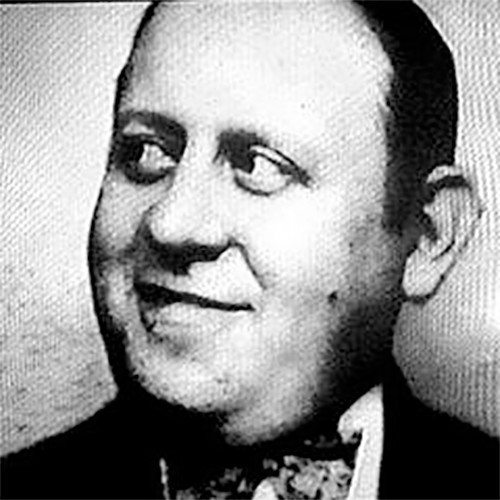It’s Nothing Personal. It’s Just Business.
Otto Berman was, by all accounts, a brilliant mathematician. His early work as an accountant catapulted him to unprecedented success when he took a job with an up-and-coming company run by New York businessman Arthur Flegenheimer.
Dissatisfied with standard earnings, Flegenheimer challenged Berman to create a new profit formula, a task for which he was uniquely qualified. With a mind like Rain Man, Berman could calculate complicated monetary risks in a flash. In their fast-paced industry, minutes counted. Otto Berman made them count for a lot, earning millions for the organization.
It’s no surprise that his boss rewarded him extravagantly, with $10,000 a week in the mid-1930s, when average annual salaries hovered just above $1000. With Berman’s talents, he might have gone even further in his career if it weren’t for his early death at the age of 44.
Aside from his notorious accounting acumen, Otto Berman retains another footnote in history. He is said to have coined the term, “It’s nothing personal; it’s just business.”
We hear this early and often in our careers. The managing partner lets the top sales producer get away with unethical behavior: it’s just business. A boss berates her assistant in front of others in a demeaning way: it’s nothing personal. An co-worker manipulates the facts and betrays his colleague in the process. It’s nothing personal—it’s just business.
We’ve accepted this adage for so long that we don’t question the world view it supports, which is that there are two sets of guiding values: one for our personal lives, one for our careers. It tells us there are two ways to live; at home with compassion and integrity, and at work, with a calculated resolve that can forgive all types of transgressions.
So, who was this guy, Otto Berman, who coined the phrase we accept as the code of business? To appreciate Otto, you have to understand his boss Flegenheimer, who was known to the FBI as Dutch Schultz.
Schultz ran a complex and successful crime organization, making money from bootlegging, nightclubs, and the numbers racket, for which Berman provided extraordinary profits.
Berman had joined a pretty tough crowd. At a time when machine-gun deaths were almost commonplace, Dutch Schultz seemed to develop an especially aberrant flair for disposing of his enemies. One account has Schultz ordering a rival to be hung on a meat hook by his thumbs, and his eyes wrapped in a piece of gauze smeared in puss from a gonorrhea infection. Schultz kindly accepted a $35,000 ransom from the man’s family, and let the soon-to-be-blind man go.
This management style worked for Schultz and Berman for several years, before Federal Prosecutor Thomas Dewey went after them with vigor, sending the organization to spiral out of control. In the end, Schultz was dispatched not by the Feds, but by his counterparts in the Mafia Commission.
Around 10:00 pm on a late October evening, gunmen barged into the Palace Chophouse in Newark, New Jersey and started firing. At the end of the bloodbath, Schultz, two of his henchmen and math whiz Otto Berman lay mortally wounded. All of them were dead within days.
I can’t find record of the exact occasion that prompted Otto to utter his now-famous motto. Perhaps he was explaining away some devious swindle or horrific murder. Or maybe it was about someone being passed over for promotion.
Regardless, somehow this phrase slipped into the lexicon of American business.
Today, it’s merely shrug-worthy. On the surface, it sounds like an affirmation—don’t worry, we’re all in this together. But at a deeper level, it has the opposite effect—it manages to separate us from others as well as ourselves.
I’m not suggesting that every business decision can be filled with unicorns and dandelions. On many days, we have to weigh a set of equally unpleasant options. Hopefully we choose the one with the best outcome and least potential for harm.
I’ve certainly used this phrase myself. Looking back on it, I was usually trying to excuse some behavior I wasn’t particularly proud of.
Now that I know who may have coined the term, I can’t shrug it away.
Every time I hear the words, “It’s nothing personal, it’s just business,” I think of the numbers racket, a meat hook, and a guy named Otto Berman.









